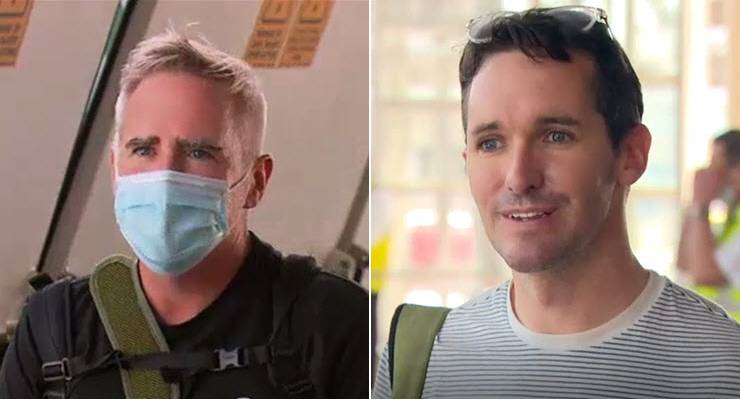
With the dramatic exit of the ABC’s Bill Birtles and The Australian Financial Review’s Michael Smith, Australian media will now have no reporters in mainland China, for the first time since the Whitlam Government recognised the People’s Republic in December 1972.
Worse, the Beijing take-over of Hong Kong means that bolthole for Australian media China-watchers is also largely closed.
The result? Most Australians will be forced to rely on reporting largely mediated through the United States and United Kingdom and analysis from Australia-based experts.
Meanwhile, Australia’s 1.5 million Chinese speakers will increasingly have to rely on official media for news from inside China.
In an information world increasingly splintering along geo-political lines, it will leave Australia increasingly positioned in the US information space.
The conclusion? There seem to have been no complaints about Birtles’ or Smith’s actual reporting.
Their forced flight suggests that China has read the Australian government’s actions as taking sides with the US campaign to “clean” the internet of Chinese influence.
Or as China’s deputy head of mission in Australia, Wang Xining, told the National Press Club: “It hurts the feelings of the Chinese people.”
It also gives a further insight into the detention of Chinese-Australian journalist Cheng Lei, suggesting it may be down to a deterioration of bilateral relations as much as anything else.
Overnight it was reported that both Birtles and Smith had left China. Birtles had sheltered in the Australian embassy in Beijing’s Sanlitun district for four days, and Smith in the consulate in Shanghai’s French Concession area.
Both had been told by Chinese security they were banned from travelling, and needed to be questioned on national security grounds. After moving to the Australian diplomatic compounds, both agreed to meet with Chinese security accompanied by Australian embassy officials. They were then allowed to leave the country.
It’s not the first challenge for Australian reporters in China.
Australian media have been struggling to get visas for correspondents or their families since late last year. This suggests that the collapse in relations pre-dated the Morrison government’s ham-fisted push for a global inquiry into COVID-19 (and the hysterical “world exclusive” reporting by News Corp about the mysterious Wuhan lab). That seems to have accelerated, rather than initiated, the decline.
Australians working for American outlets (The Wall Street Journal’s Phillip Wen and The New York Times’ Chris Buckley) have already been moved on as part of the Chinese shut-out of US media.
The New York Times has said that, for safety reasons, it is planning on moving its east Asia bureau covering mainland China and Hong Kong to Seoul in South Korea.
For the time being, some Australians remain in China, working for European media (such as former ABC correspondent Stephen McDonnell, now with the BBC) or for local English-language media.
Australian media were among the first into China as it opened up after the Cultural Revolution, (and Australian official recognition) with the ABC’s Paul Raffaele moving to Beijing in 1973 and Margaret Jones from The Sydney Morning Herald in 1974.
Australian journalists had been long reporting on China before that, from George “Chinese” Morrison in the 1890s and early Republic through to Hong Kong-based Richard Hughes in 1950s and 1960s (Hughes was famously fictionalised both by Ian Fleming in the Bond books and by John Le Carre in the Smiley series).
Beijing has become a key posting for Australian media, as it demands in-depth reporting (usually with Chinese language skills) of one of the big stories of the past half century. It’s been central to Australia’s understanding of world events.
Now, with news from China again mediated through the global news hubs of London and New York, Australia’s understanding of our own region will be inevitably diminished.








Is the ABC’s China Bureau so far unaffected? Sarah Ferguson might be vulnerable, and perhaps Tony Jones as well.
I found a piece online (reported back in June) that Sarah Ferguson had not been granted a visa by China. So, she & Jones may have dodged a bullet.
Hopefully, the ABC will make mention of it & clarify.
I hope that the sudden fire in the government’s belly about press freedom will apply to Assange.
Or does criticising despotic hegemons bent on world dominance only apply to certain ones?
Aren’t Sarah Ferguson and Tony Jones also in China? Will they be able to get out?
It’s probably best if people don’t answer this question. No need to draw up a list for the Chinese authorities.
I’m glad they’re safe. BB has always been a favourite for me and not just because he has a great name!